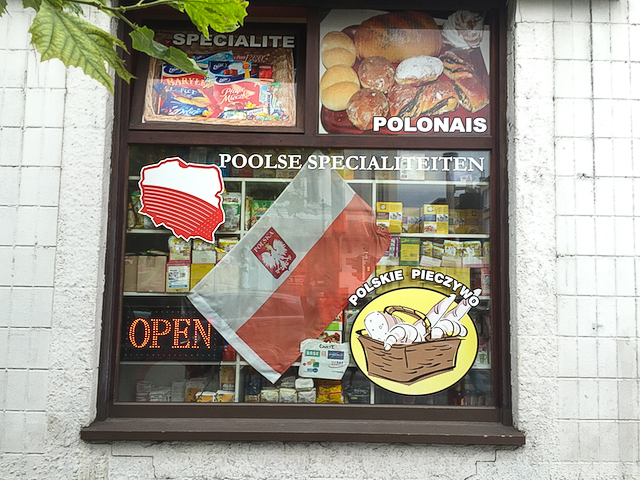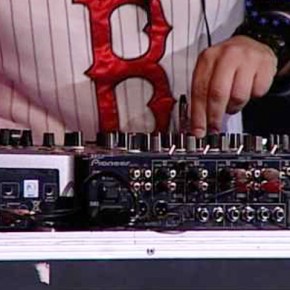In the three groups which form the bulk of our immigrant population, the Slav is now the strongest and the most interesting factor, and is destined to be for some time to come. In spite of his being from the least densely populated regions, he is numerically the greatest and will long maintain his supremacy.
There are more than 100,000,000 Slavs, and the territory they occupy is vast, covering half of Europe, reaching far into Asia.
These people are scattered in villages, rarely concentrated in cities. Social conditions among them are now such as to force this most immovable of European races into the great outgoing tide.
The majority of Slavic people is of peasant type, and scarcely anywhere has it developed a middle class strong enough to form a bridge upon which to cross the age-long chasm between it and the upper class.
This means that poverty and contempt have been accepted as the reward for hard labour, and as the divinely appointed lot of the peasant, who in but few Slavic countries has escaped serfdom, a condition of semi-slavery from which he emerged with insufficient land, or none, with many limitations as to individual ownership and with practically no limitations as to his share of the burden of government support.
The masses of the peoples of the Slavic countries have never been above economic want, and have been but slowly awakened to the more expensive demands of our civilization.
To the peasant, bread and cabbage to eat, a straw thatched isba to shelter his family, and an occasional pull at the vodka bottle, meant comfort; while to have feather beds, a crowing cock in the barn-yard and a pig killing once a year, was the realization of his wildest dreams.
Fully two-thirds of these more than 100,000,000 people do not know what it means to have enough bread to eat, and with the exception of Hungary, many of the countries in which they live do not produce enough foodstuffs to allow every man the ordinary military rations. Nevertheless, they are forced to export a fair share of their crops, in order to bring sufficient money into the country for the support of the government.
To people living under such economic conditions, emigrating to America will, for some years at least, be a going from Egypt to the Promised Land; although manna and meat have to be supplied without supernatural intervention and at the constant peril of life and limb.
As the Slav has not yet developed a compact middle class, this has had to be supplied by foreigners. Germans, Jews, Tartars, Armenians and Greeks are his merchants and mechanics, his bankers and manufacturers. This condition has fixed the social status of the peasant, placed him under exceptionally burdensome laws and marked him an inferior.

His picturesque clothing became his prison garb, and rarely did he have opportunity to exchange it for the commonplace clothing of our civilization.
To be a peasant means to be addressed by a personal pronoun which is a mark of inferiority; it means to be bound by customs which are as irksome as an “iron shirt”; it means to be the butt of the ridicule of stage fools, who, after all, only mimic the fools in real life.
Military service offered the only escape from this cast, and bravery in battle the only avenue to distinction.
Into some regions the industrial life came with its rude call to freedom, with its trumpet notes of revolution, and the half awakened Slav struck; then went to sleep again, murmuring something like a curse, before he closed his eyes.
This social disability of the Slavic peasant is being partially overcome by immigration; for the immigrant who has tasted a little of even our crude freedom with its mixed blessings, who wears our sombre clothing, whose feet are shod with our shoes—he it is of whom it might again be said, poetically and prophetically: “How beautiful are the feet of him that bringeth glad tidings of good things.”
These glad tidings will, for a long time, bring us these millions, in the hope that they too may earn the right to escape their bondage with its attendant limitations and contumely.
Economically, always at the edge of want and in the shadow of starvation, and socially always at a disadvantage, the Slavic peasant is also living under galling political conditions which he is only now beginning to feel in all their severity.
With but few exceptions, the Slav is an oppressed man; oppressed by alien rulers, who, by force, are trying to wipe out of his consciousness his national memories, and steal from his lips his mother tongue.

Where it is not the German or the Magyar who puts him under the yoke, it is some close Slav relative who is practicing on him the Golden Rule in its perverted form. When these conditions do not exist, the Slav bears the yoke of his own making, in the form of Autocracy.
It is the distinction of the Slavs that they are the only Europeans who, although not unanimously, believe that Autocracy is the form of government best suited to their national character.
This is certainly true of many Russians, who see in the Czar a divinely appointed autocrat; while many other Slavs of different nationalities dream of the day when they shall bear this same yoke. The Russians also rule, and most severely, their close kinsmen, the Poles, and are not noticeably liberal to the Malo Russ, the Little Russians of the South.
Every cruel, political expedient has been used by Russia to subjugate or assimilate these people, who are flesh of her flesh and bone of her bone.
One might imagine that the Poles would have learned enough in the school of political adversity to treat their own kinsmen, at least, as they would wish to be treated; but the trials the Ruthenians have endured at their hands are equalled only by what they themselves have endured at the hands of the Russians.
That the Poles suffer from the Germans, the Slovaks from the Magyars, the Slovenes and Servians from the Austrians, is only additional evidence that everywhere the Slavic peasant suffers politically, and that there is sufficient cause for the insecurity of his foothold. He realizes this the more, in the measure in which he feels the breath of welcoming freedom from across the seas, which lures him to our turbulent training school in citizenship, and no doubt will continue to lure him.
The economic, social and political conditions among the Slavs are such as will for some time in the future make their coming to America in large numbers, a certainty, and it is not out of the question that they will be the determining factor in our civilization.
The Slav fits admirably into the place usually assigned the late comers among the immigrants: the bottom rung of the economic ladder. Of rugged physique and docile temper, he is regarded a valuable workman, performing the hardest tasks uncomplainingly, facing attendant dangers courageously, and enduring hardships and sufferings stolidly and without a murmur. Economically, he is never so much of a problem as the immigrant who comes to make his living by his wits; for that is a sphere likely to be crowded by the earlier, or what we might call the more advanced groups.
The Slav is docile and patient and need not be regarded as a serious economic menace by those who think that our workmen should demand a decent wage and maintain a fair standard of living. He is not temperate in his habits of either eating or drinking, his tastes in regard to clothing are crude, but not necessarily inexpensive and he squanders too much money for “that which satisfieth not.” He spends over thirty per cent. more for drink than the native workman, pays more, according to his wage, for rent, and falls behind only in that mysterious column which the social observer calls “miscellaneous.”
In the Slavic groups which have been here longest and which contain households, the wife has lifted this mysterious column to a normal figure; for “Mother Vanity” has many daughters among the Slavic women.
The Slavic standard of cleanliness suffers by comparison with that of the older groups; although they are widely different in this respect and it is not safe to generalize on that point.
In judging the Slav, we must take into consideration the housing conditions in America as he finds them, the fact that the men among the Slavs never do woman’s work, that many of them come without their wives and that the woman in her native environment has very little time for the finer household duties. She is her husband’s partner in all his heavy labour; but must do all her household work unaided.
Many of the Slavic groups will be slow to understand and appreciate the higher ideals of our civilization, but our civilization is not so foreign to their genius as we are apt to think. Wherever they have had the slightest opportunity, they have made valuable contribution to it.
We must not forget that the Slav gave the world a Copernicus before we gave it a Newton; that he gave it a John Huss before the Germans gave it a Luther; that Comenius, one of the greatest pedagogues, lived and laboured before Froebel and Pestalozzi; and that Turgenieff, Tolstoy, Dostoyevsky, Pushkin and Sienkiewicz stand fairly well beside our makers of literature.
I am not blind to some of the defects in the character of the Slavic peoples, in fact I know them so well that I know their source and I realize that they are not rooted in the race, but are the results of tyranny. These faults which seem so deeply fixed in the lives of the people can and will be wiped out; although the task may not be an easy one.
Adapted from the Immigrant Tide: Its Ebb and Flow, by Edward A. Steiner (1909). Photographs courtesy of Joel Schalit. Published under a Creative Commons license.





